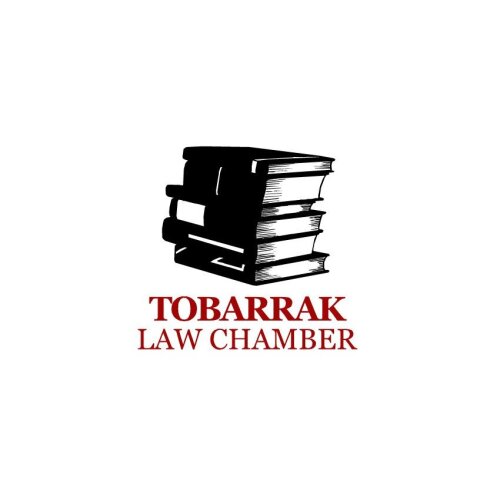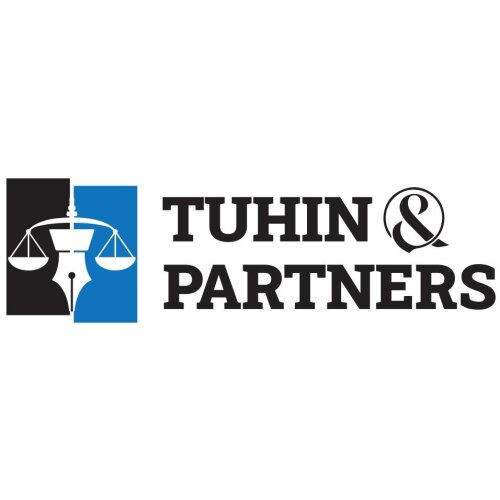Best Media, Technology and Telecoms Lawyers in Bangladesh
Share your needs with us, get contacted by law firms.
Free. Takes 2 min.
Or refine your search by selecting a city:
List of the best lawyers in Bangladesh
About Media, Technology and Telecoms Law in Bangladesh
In Bangladesh, the fields of media, technology, and telecommunications are rapidly evolving sectors that are pivotal to the country's economic growth and societal development. These sectors are governed by a robust legal framework that seeks to address the complexities of modern communication and information sharing, balancing innovation with regulation. Key components include broadcasting, internet services, data protection, and telecommunication regulations, all aimed at fostering fair competition, enhancing consumer rights, and ensuring national security.
Why You May Need a Lawyer
There are numerous reasons why individuals and businesses might require legal assistance in the fields of media, technology, and telecommunications in Bangladesh. Common scenarios include:
- Compliance issues with broadcasting and telecommunication regulations.
- Intellectual property disputes, particularly related to digital content.
- Legal challenges in data privacy and cyber security.
- Contractual disputes with service providers or partners.
- Licensing issues for technology and telecom services.
- Defamation or privacy issues arising from media publications.
- Legal implications of online and digital advertising.
- Consumer protection and competition law concerns.
Local Laws Overview
Key aspects of the legal landscape in Bangladesh relevant to media, technology, and telecommunication include:
- The Information and Communication Technology Act: This law provides the foundation for the digital ecosystem, including provisions for cybercrimes and electronic transactions.
- The Telecommunications Act: Governs the licensing, regulation, and oversight of telecommunications services and providers.
- The Digital Security Act: Focuses on the protection of digital data and addresses issues such as hacking, unauthorized access, and online expression.
- The Broadcasting Policy: Establishes guidelines for content regulation, licensing, and operation of broadcast media.
- Intellectual Property Laws: Protects copyrights, trademarks, and patents across digital and media platforms.
- Consumer Rights Protection Act: Ensures fair practice and addresses grievances related to telecommunication and technology services.
Frequently Asked Questions
What regulations apply to internet service providers in Bangladesh?
Internet service providers are regulated under the Telecommunications Act, which mandates licensing and compliance with technical and service quality standards as set by the Bangladesh Telecommunication Regulatory Commission (BTRC).
How are cybercrimes penalized in Bangladesh?
The Digital Security Act outlines penalties for various cybercrimes, including hacking, identity theft, and online harassment, with provisions for fines and imprisonment depending on the severity of the offense.
What is required to start a broadcasting service in Bangladesh?
To start a broadcasting service, one must obtain a license from the Ministry of Information, which involves fulfilling criteria related to content standards, technical requirements, and ownership regulations.
How is digital content protected under intellectual property law?
Digital content is protected under the Copyright Act, which provides creators with exclusive rights to their work and legal avenues for action against unauthorized use or reproduction.
What rights do consumers have against telecom services?
Consumers are protected under the Consumer Rights Protection Act which allows them to file complaints against unfair practices, fraud, or poor service from telecommunication providers.
Are there any restrictions on online expression in Bangladesh?
Yes, the Digital Security Act includes provisions that may restrict online expression deemed harmful, false, or against national interests, and violators may face legal consequences.
How can I protect my personal data online?
Although specific data protection laws are still developing, it is essential to follow best practices such as using secure passwords, enabling two-factor authentication, and being aware of terms and conditions when using online services.
What is the role of the Bangladesh Telecommunication Regulatory Commission (BTRC)?
The BTRC is responsible for regulating telecommunications services, ensuring compliance with licensing requirements, promoting fair competition, and protecting consumer rights.
Can foreign companies operate media services in Bangladesh?
Foreign companies can operate, but they must comply with local laws, including obtaining necessary permits and adhering to content, ownership, and operational guidelines.
What steps are involved in handling a defamation case in media?
Handling a defamation case involves gathering evidence, filing a complaint with the relevant authorities or a court, and possibly pursuing a civil suit for damages with the assistance of a legal professional.
Additional Resources
For additional information and support, consider reaching out to the following resources:
- Bangladesh Telecommunication Regulatory Commission (BTRC): The regulatory body for telecom operators.
- Ministry of Information: Responsible for media regulation and policy implementation.
- Cyber Crime Unit of Bangladesh Police: Assists with cybercrime related matters.
- Bangladesh Association of Software and Information Services (BASIS): Represents IT and ITES industries.
- Intellectual Property Association of Bangladesh (IPAB): Provides guidance on intellectual property issues.
Next Steps
If you need legal assistance in media, technology, or telecommunications in Bangladesh, consider the following steps:
- Identify your specific legal issue and gather all relevant documentation.
- Consult with a lawyer specializing in media, technology, or telecom law to discuss your case.
- Ensure the lawyer provides you with a clear understanding of your legal rights and potential outcomes.
- Develop a legal strategy with your lawyer that addresses your needs and goals.
- Proceed with filing any necessary legal complaints or actions with the guidance of your legal advisor.
Taking prompt and informed action is essential in navigating legal challenges in these dynamic sectors.
Lawzana helps you find the best lawyers and law firms in Bangladesh through a curated and pre-screened list of qualified legal professionals. Our platform offers rankings and detailed profiles of attorneys and law firms, allowing you to compare based on practice areas, including Media, Technology and Telecoms, experience, and client feedback.
Each profile includes a description of the firm's areas of practice, client reviews, team members and partners, year of establishment, spoken languages, office locations, contact information, social media presence, and any published articles or resources. Most firms on our platform speak English and are experienced in both local and international legal matters.
Get a quote from top-rated law firms in Bangladesh — quickly, securely, and without unnecessary hassle.
Disclaimer:
The information provided on this page is for general informational purposes only and does not constitute legal advice. While we strive to ensure the accuracy and relevance of the content, legal information may change over time, and interpretations of the law can vary. You should always consult with a qualified legal professional for advice specific to your situation.
We disclaim all liability for actions taken or not taken based on the content of this page. If you believe any information is incorrect or outdated, please contact us, and we will review and update it where appropriate.
Browse media, technology and telecoms law firms by service in Bangladesh
Bangladesh Attorneys in related practice areas.
Browse media, technology and telecoms law firms by city in Bangladesh
Refine your search by selecting a city.











